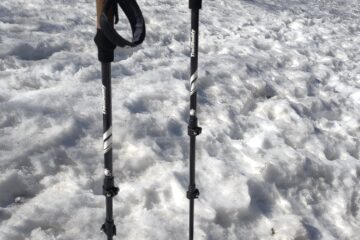The 10 Hiking Essentials you Need Before the Trail
Are you ready to hit the trails and explore the great outdoors? Hiking is a beautiful way to enjoy nature, exercise, and have fun. But before you go, you must ensure you have the right gear. Here are the top 10 hiking essentials every hiker needs for comfortable and safe outdoor adventure:
1. Backpack. You’ll need a sturdy backpack to carry all your stuff. Look for one with padded straps, a waist belt, and a rain cover. A bag with multiple compartments and pockets will help you organize your gear and access it easily.
2. Hiking boots or shoes. Your feet are your most important asset when hiking, so you must protect them with proper footwear. Choose hiking boots or shoes that fit well, offer good traction and support, and are waterproof or water-resistant. Break them in before your hike to avoid blisters and discomfort.
3. Hiking socks. Don’t skimp on socks. It would be best to have socks made of wool or synthetic materials that wick away moisture and prevent friction. Avoid cotton socks that can cause blisters and fungal infections. Consider bringing extra socks to change if your feet get wet or sweaty.
4. Water bottle or hydration pack. Staying hydrated is essential when hiking, especially in hot or dry conditions. Bring enough water for your hike and refill it whenever you can. You can drink without stopping using a water bottle or a hydration pack. Consider bringing a water filter or purification tablets just in case you need to drink from natural sources.
5. Snacks and food. Hiking burns many calories, so you need to replenish your energy with snacks and food. Bring high-protein, high-carb, high-fat foods that are easy to eat and digest, such as nuts, granola bars, dried fruits, cheese, jerky, and chocolate. Avoid foods that are bulky, heavy, or perishable.
7. Map and compass or GPS device. Getting lost is not fun when hiking, so you need a map, compass, or GPS device to help you navigate the trail. A map and compass are reliable and don’t need batteries, but they require some skills to use them correctly. A GPS device is convenient and easy to use, but it can run out of power or lose signal in remote areas.
8. Headlamp or flashlight. Even if you plan to hike during the day, you never know when you might need some light. A headlamp or flashlight can help you see in the dark, signal for help, or start a fire. Ensure you have extra batteries or a solar charger for your light source.
9. Knife or multi-tool. A knife or multi-tool is useful for hiking, such as cutting food, opening cans, repairing gear, or making a shelter. Choose a knife or multi-tool that is sharp, sturdy, and easy to carry.
10. Clothing layers. The weather can change quickly when hiking, so you need to dress appropriately for the conditions. Wear clothing layers that you can add or remove as needed. Start with a base layer that wicks away moisture from your skin, such as a synthetic or wool shirt. Add an insulating layer that traps heat, such as a fleece jacket or sweater. Finish with an outer layer that protects you from wind and rain, such as a waterproof shell or parka.
With these ten essential hiking gears, you’re ready to hit the trails and have a blast! Remember to pack light, stay safe, and have fun!
Next: The Fun, Rewarding Way to Track National Parks Hikes – GoTravelHiking

